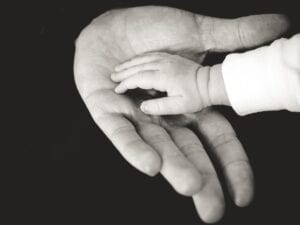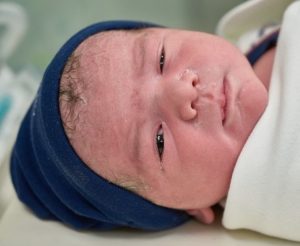Necrotizing Enterocolitis (NEC)
What is necrotizing enterocolitis?
Necrotizing enterocolitis (NEC) is characterized by an inflammation of the intestines, typically the colon. NEC has the potential to affect only the lining of the intestine or the entire organ. Inflammation can lead to a hole in the intestines that allows bacteria normally only present in the intestines into the abdomen. This bacteria can cause infection, which progresses quickly and becomes a medical emergency.
NEC primarily affects premature babies and occurs 3-12 days after birth. It occurs in one of every 2,000-4,000 births. While it affects nearly 10% of premature babies, it is much rarer in full term infants.
What are the symptoms of necrotizing enterocolitis?
Symptoms of NEC include:
- Poor tolerance to eating
- Bloated or swollen tummy
- Frequent vomiting
- Blood in the stool
- Redness or abnormal coloring of the tummy
- Lack of energy
- Fever
- Apnea
These symptoms typically appear within the first two weeks of birth.
What causes necrotizing enterocolitis?
Prematurity is the most common reason for NEC. In other cases, the exact cause is unknown. Healthcare professionals believe it may be a lack of oxygen or blood reaching the intestines, which leads to weakness. They suspect that once food enters the weakened intestines, damage and death occurs in the tissue. Formula feeding opposed to breastfeeding may also heighten an infant’s chance of having NEC.
How is necrotizing enterocolitis diagnosed?
A diagnosis begins with a physical examination, in which the doctor looks for symptoms associated with NEC, typically swelling and tenderness. Next, an x-ray is conducted to see if the intestines appear bubbly or if there is air in the veins of the liver. The last step is to insert a needle into the abdomen to check for intestinal fluid, which points to a hole in the intestines. This last step is not always necessary in diagnosis.
What are the treatments for necrotizing enterocolitis?
Treatment varies depending on age, overall health, tolerance to medication, and severity of the disease. Treatment options include:
- Antibiotics for infection
- Monitoring bowel movements
- IV feeding
- Regular x-rays
- A tube to remove air and fluid from the intestines
- Regular blood work
In severe cases infants may require breathing support or surgery to remove the damaged part of the intestine.
Where can I find out more about necrotizing enterocolitis?
Necrotizing Enterocolitis Articles

CZI Granted $1M to UNC Researchers to Study Necrotizing Enterocolitis

Necrotizing Enterocolitis: Defying a Dangerous Prognosis

Gut Virome Changes in Infants Could Signal Necrotizing Enterocolitis

Compassion Corner: A Grieving Mother Laments a Lack of Compassion by Nurses When Her Baby Died


-300x300.jpg)






